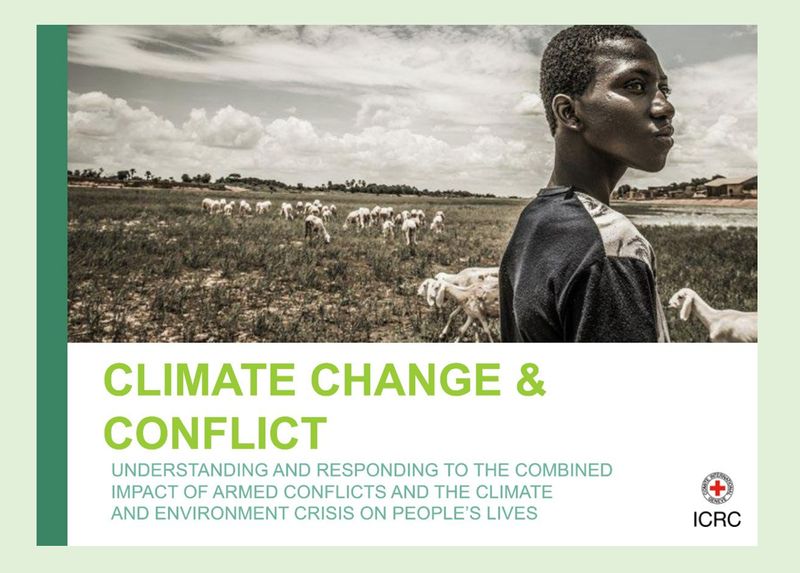Populations across the globe are affected by environmental degradation and climate change, which exacerbates existing vulnerabilities, inequalities, and social fragility. People, communities, and countries affected by armed conflict tend to be especially vulnerable to the effects of climate change since they are less able to adapt and protect themselves. When the environment is damaged or destroyed, it threatens the well-being, health, and survival of conflict-affected populations. For example, attacks can lead to water, soil, and land contamination, rendering drinking water and agricultural land scarcer for those already in desperate need. To better understand these issues and their impact, informed deliberation on such themes is essential.
With the objective of advancing discussions and deliberations on these issues, the 8th Advanced International Humanitarian Law (IHL) South Asian Academics Platform (AISAAP), was organized in an online format, in collaboration with the Asia Pacific Journal of International Humanitarian Law (APJIHL), on May 2 and 3, 2023.
AISAAP was initiated by the ICRC in 2011 with the aim of promoting the study of IHL amongst academicians from different universities in South Asia and Iran. The AISAAP aims to foster greater awareness of humanitarian issues amongst the academic community and to promote a space for Asian perspectives in the global discourse. It also provides a platform for academicians to forge networks among experts in the region from different universities in the region.
20 academics from South Asia participated in this year’s edition, including participants from Bangladesh, Bhutan, India, Nepal, Pakistan, and Sri Lanka, who presented papers on armed conflict, climate change, and environmental protection. The paper presentations were spread across four thematic panels, with eminent discussants from the ICRC and APJIHL chairing each session.
ICRC’s Operations Coordinator for Asia, Ms Myriam Favier, delivered the opening remarks on May 2, wherein she acknowledged that the link between climate change and armed conflict is not necessarily an obvious one to all, and highlighted 8 of 10 countries most vulnerable and least ready to adapt to climate change are affected by an armed conflict. She put into sharp focus, the humanitarian issues that arise for populations affected by the collision of risks presented by climate change and armed conflict, by sharing the lived experiences of affected populations and the work of the ICRC in the field. She then invited participants to engage in out-of-the-box thinking and to come up with creative solutions to tackle such challenges, thus setting the stage for panel discussions to commence.
Panel 1 on Climate change and the protection of the natural environment: International, regional and domestic perspectives in law, policy and religion. Panel 2 included papers themed around the Conduct of hostilities and the impact of weapons on the natural environment.
Proceedings on May 3 kicked off with Panel 3, which dealt with the theme of Climate change and protection of the natural environment from the lens of individual and group rights, and transitional justice. Parallelly, papers presented as part of Panel 4 engaged with the theme of State responsibility, duty to ensure respect for IHL, and international criminal law.
The gathering concluded with the Operational Legal Coordinator for Asia (Manila) and a member of APJIHL’s Editorial Board, Ms Kelisiana Thynne’s closing remarks, wherein she appreciated the multi-disciplinary lens through which these pressing issues were analyzed and critiqued by participants and emphasized that the combined impacts of conflict, environmental degradation and climate risks have added new urgency to the ICRC’s work to protect the environment in armed conflict and prevent the deeply interlinked civilian harm that accompanies environmental damage.
Indeed, the discussions went beyond the black letter of the law, evolving into recommendations for practical action and policy change to protect the natural environment from climate change, climate change’s impact on conflict and ways to protect the natural environment in times of armed conflict. As the participating authors continue to develop their papers with a view to further advancing the discourse on concerns at the intersection of climate change and armed conflict discussed at AISAAP, select contributions will be chosen for publication in forthcoming issues of the APJIHL.



